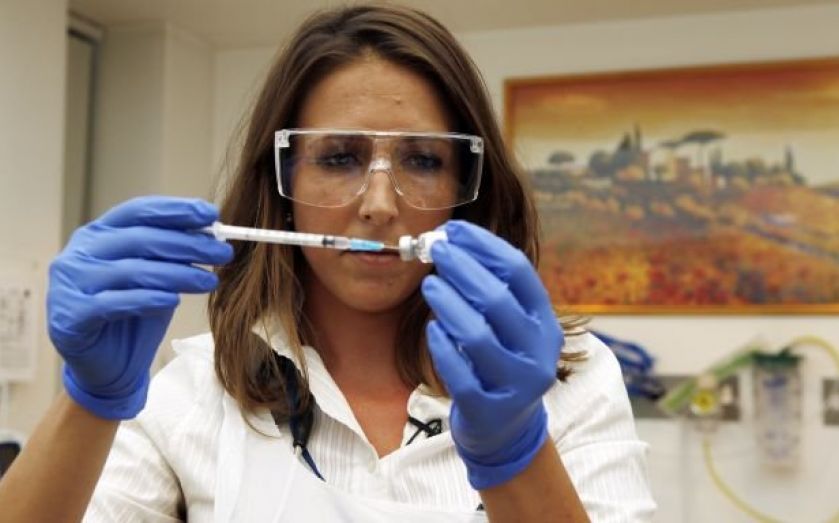| Updated:
Is there a cure for Ebola? These three companies are racing to create a vaccine against the deadly virus

As the death toll from Ebola continues to rise in west Africa, the pressure being placed on pharmaceutical companies to come up with a cure for the disease is mounting.
According to estimates from the World Heath Organisation (WHO), the epidemic has already killed over 4,500 people in the region and the infection rate could reach 10,000 a week by early December.
There is currently no licensed vaccine or specific treatment available, but a consensus is growing that vaccines may be the only way to stop the outbreak that has engulfed Guinea, Sierra Leone and Liberia.
Three companies – GSK, NewLink and Johnson & Johnson – have come to fore as each tries to get its vaccine developed soon enough to bring the epidemic under control.
GlaxoSmithKline and the US Institute of Health
GSK's vaccine is at the most advanced stage of development, and the London-based pharmaceutical company is aiming to make the first does of its serum available by the end of the year.
The drug was first acquired by GSK when it purchased biotech company Okairos in 2013. It works by attacking the Zaire species of Ebola, which is responsible for the current outbreak.
It uses a single protein from the Ebola virus to set off an immune response, and is considered to be safe because it does not contain any infectious viral material – this means it cannot cause a person who is vaccinated to become infected with Ebola.
Chief executive Andrew Witty said yesterday that the first batch of the vaccine could soon be shipped to the WHO and could be the first vaccine to be used in West Africa. "I fully anticipate that the initial supply should be available before the year-end," he said.
NewLink
The Canadian pharmaceutical company licensed the vaccine VSV-EBOV in 2010.
VSV-EBOV is the only other experimental Ebola vaccine sufficiently developed at this point to be tested in people. The first human trials with the vaccine began in Maryland in the US last week, and four more – in Germany, Switzerland, Gabon and Kenya – will start in the next few weeks.
According to WHO 250 people will be enrolled in the phase 1 trials, which are aimed at showing whether the vaccine is safe to use in people.
Yesterday, NewLink's chief executive Charles Link said testing was moving swiftly. “There haven’t been any delays. We couldn’t go any faster without really doing things dangerously,” he said.
But some in the industry have questioned whether the small biotech company, which usually focusses on cancer vaccines, has the experience to move forward with such an important project.
Johnson & Johnson
Johnson & Johnson is a little behind the other two, with trials of its vaccine due to start in January.
$200m (£124m) has been pledged to accelerate the research programme, and it plans to manufacture one million doses over the course of the next year. J&J said 250,000 of these will be released for "broad application" in clinical trials by May.
The vaccine targets the Zaire strain of the virus, and combines a candidate from Janssen, a J&J unit dedicated to finding treatments for unmet medical needs, with one from Danish biotech company Bavarian Nordic.
J&J has invested $43m in Bavarian Nordic to help the much smaller company scale up its vaccine production.
Volunteers in the US, Africa and Europe will be given the vaccine, which has already shown “promise” in animal testing.
Chief scientific officer Dr Stoffels said the aim to produce over a million vaccines in the next few months was “within reach”.
"We are committed to bringing our science, technology, innovation and resources to help prevent and treat this deadly disease,” he said.